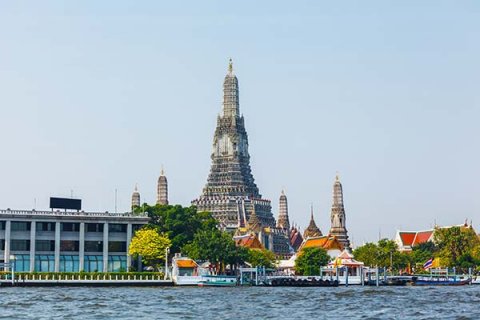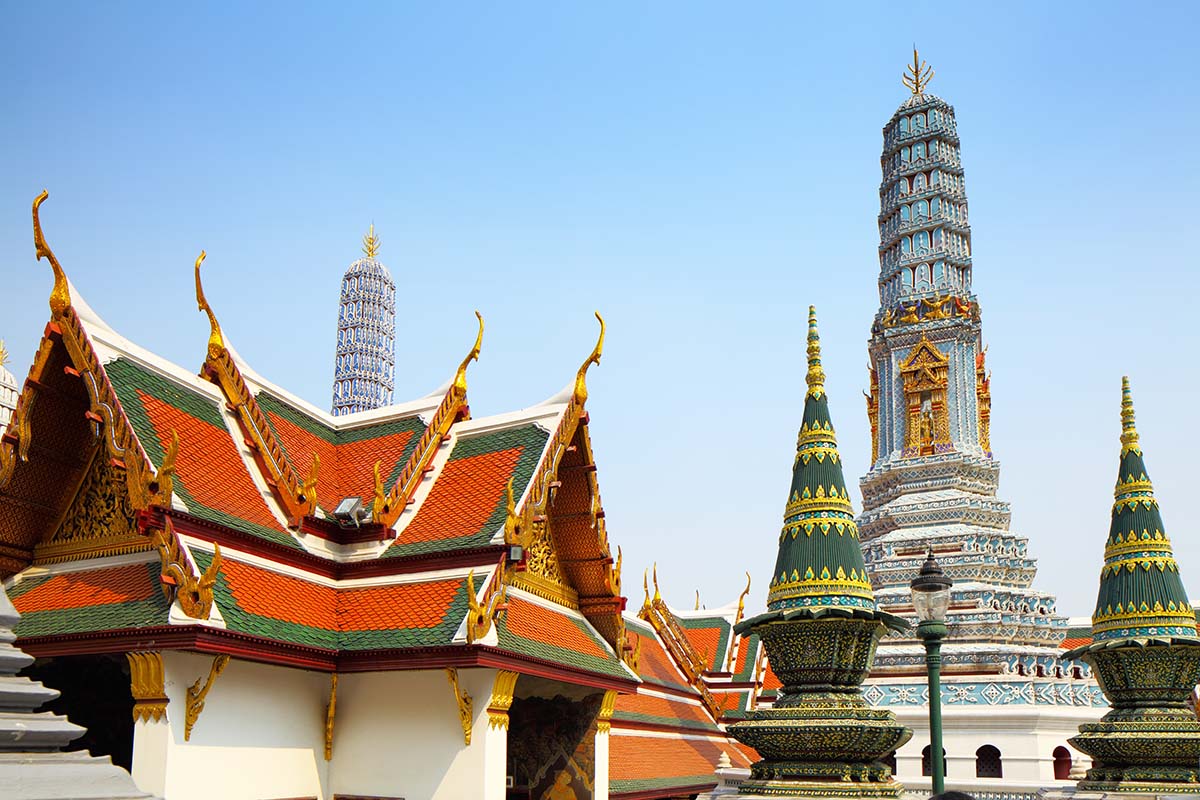
Thailand and Vietnam are 2 of the most popular tourist destinations in the world. The tropical climate attracts Europeans who want to escape their winters and it's an all-year-round beach lover’s paradise. Lovers of the exotic are interested in the cultural heritage of both countries. Many foreigners start to think about buy-to-live, buy-to-relax or buy-to-invest homes after vacationing in these countries.
Let’s have a look at which of these 2 countries is best for buy-to-invest real estate and where it’s easier for a foreigner to buy an apartment or house.
Content:
Economic situation
The Kingdom of Thailand and the Socialist Republic of Vietnam are members of ASEAN - the Association of Southeast Asian Nations. These countries are referred to as "Asian Tigers of the second wave (with the Tiger Cub Economies)" or new industrial countries. Thailand and Vietnam are always developing. The growing urbanization means there’s rapid construction in large cities and administrative centers. The real estate market offers many modern facilities of high quality in both countries.
Thailand's economic development is far ahead of Vietnam’s at the moment. The GDP per person was 19,228 USD per year in 2020 in Thailand and 8,374 USD in Vietnam. Bangkok, Thailand’s capital, has been the most visited city in the world for several years in a row and it’s South-East Asia’s main transport hub. Vietnam can’t boast of anything like this.
.jpg)
Laws and regulations of real estate ownership
Thailand’s real estate market is regulated by the Land Law of 1954 (as amended in 1999 and 2008) and the Thailand Condominium Act of 1975 (as amended in 1990 and 2008). Vietnam has the new Land Right from 2013 and the Real Estate Law from 2015. The Law of 2015 fundamentally changed the rights of foreigners to own real estate in Vietnam. It opened its market to citizens of other countries.
From the 1st of July, 2015, foreign individuals and legal persons could buy Vietnamese real estate. But you should remember that Vietnam is a socialist republic. There’s no permanent property right for foreigners in the country. A foreign citizen can purchase any real estate in Vietnam under a long-term lease. This is a Leasehold for a maximum of 50 years with the possibility of extension for another 50 years. If a foreigner marries a Vietnamese citizen, they get citizen rights to purchase real estate. So they can get Freehold property after marriage.
To understand the conditions for buying property in Thailand and Vietnam, keep in mind the 2 types of property ownership in the countries:
- Freehold - full ownership without any restrictions or limitations.
- Leasehold - time-limited ownership; a long-term lease with the right to rent out, sell, donate, inherit, etc.
There are other restrictions for foreigners in Vietnam. Foreigners can’t settle in any part of the country without an agreement with the authorities. The state determines zones where non-citizens can buy homes. There’s also a quota where no more than 10% or 250 units (usually less) in one administrative district (cottage settlement) and no more than 30% of units in an apartment building can be foreign-owned.
A foreigner also can’t own land in Thailand. But it’s possible to have a 30-year long-term lease with the possibility of extension for up to 90 years. An official way to purchase land is if a foreigner sets up a company in Thailand and buys land in the company's name. The catch is that Thai citizens have to own 51% of the company's shares.
But, a foreigner can buy any apartments and houses in full ownership (Freehold) in any region in Thailand. The only restriction for purchasing apartments in a condominium is that foreigners can’t own more than 49% of the apartments in the condo.
A required condition to buy property in Thailand is transferring funds in the currency of the buyer's bank/country and converting it directly into baht in the bank of Thailand. But in Vietnam, you can pay for real estate in any convenient way, even in cash.
In Thailand, foreigners can’t have mortgages but they can in Vietnam. Banks in the country provide loans to foreigners up to 70% of the real estate value with an interest rate of 6.5–7.5% a year.
Both countries don’t grant residence permits or citizenship when you buy real estate. But in Thailand, you can get a long-term elite visa for up to 20 years when you buy housing for at least 70,000 USD.
Foreigners real estate ownership rights:
| Thailand | Vietnam | |
|---|---|---|
| Land ownership | Leasehold (30 years, up to 90 years maximum) | Leasehold (50 years, the possibility of extension for another 50 years) |
| Ownership of apartments (condominiums) | Freehold/leasehold (foreigners own 49%) | Leasehold (foreigners own 30%) |
| Ownership of villas/townhouses/houses, etc. | Leasehold/freehold | Leasehold (10% or 250 separate houses in an administrative area) |
| Legal status after purchasing real estate in the country | Opportunity to get an elite visa (with investments of more than 70,000 USD) | None |
| Regions for foreigners to buy properties | No restrictions | Government restrictions |
| Mortgage | No | Yes |

Investment profits
The most famous resort in Vietnam is Nha Trang. There are also resorts in Phan Thiet, Phu Kok, Da Lat, Da Nang, etc. You can buy an apartment there for about 1,100 USD per square meter. In the city, you can find elite villas and cozy apartments. In Pattaya, Phuket, Hua Hin, Koh Samui and other popular resorts in Thailand, you’ll find real estate for every taste and budget. You can buy an apartment there for about 3,000 USD per square meter.
Real estate prices in Vietnam grow by about 3-7% a year. Prices continued to grow even during the COVID-19 pandemic. The profitability of rental properties is 5% on average per year.
Rental properties bring 7% to 10% of income a year in Thailand. During the COVID-19 pandemic, the real estate market was in a deep crisis. But government support measures and the improved situation made progress in leaps and bounds.
The real estate market in Thailand has been open to foreign investors for a long time. All the processes to purchase a home are worked out and easy to do. Vietnam only opened to this in 2015 when foreign property purchase rights changed dramatically. Many potential investors are still afraid to enter the market because the government can change the rules of the game again. Real estate transactions with foreigners don’t exceed 5% even in Vietnam’s resort areas.
Thailand is the most popular tourist destination in the Southeast region. More than 39,000,000 people visited this country in 2019 before the start of the pandemic. During the same year, about 17,000,000 people visited Vietnam. Tourists rent apartments, villas, houses in Thailand’s resorts areas, bringing income to real estate investors in the Kingdom.
In Thailand, real estate is slightly more expensive in general than in Vietnam but its profitability is higher. Many foreigners have been buying apartments and houses there for a long time and there are no concerns about property safety.


